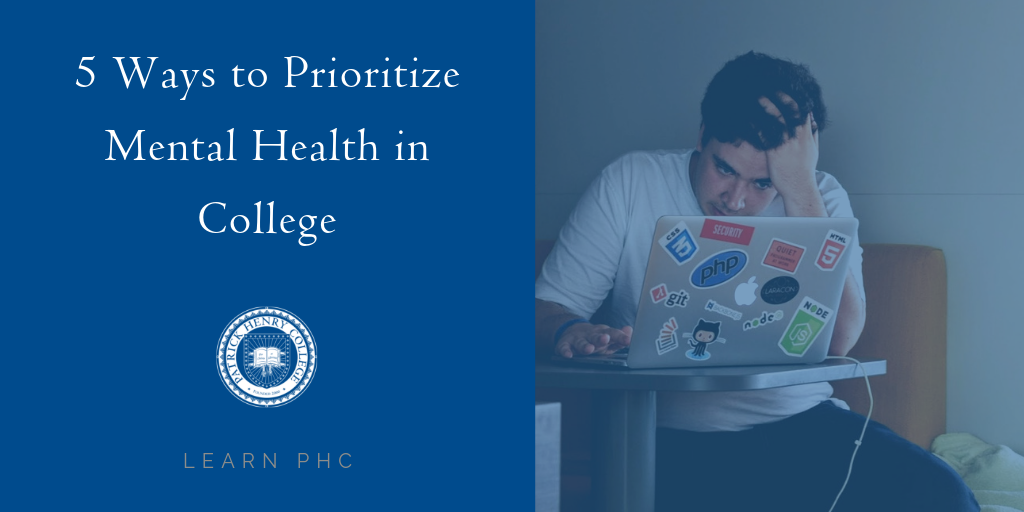
If you keep up with the recent news stories on the mental health of college students then you’ve frequently seen statistics on the rise of stress, anxiety, and depression. For parents about to send their child off to college or any high school students preparing for college, these statistics can seem intimidating.
Establishing healthy habits and learning to prioritize your mental health now can help prevent burnout after four years. Patrick Henry College students share some of the habits and changes they made during their college years to prioritize their mental health. Now, of course, none of the ideas are themselves solutions to preventing mental illness, but they are ideas to start you thinking on how you can prioritize your mental health.
1. Find friends you trust to talk about your feelings with
This one might seem pretty intuitive, but it’s easy to forget. Senior Alan Iiyama said, “Honestly, just opening up to a friend about your mental health is very helpful. It's a lot harder than it sounds but admitting to someone else that you are struggling emotionally/mentally can be extremely difficult. The worst thing you could do is struggle with your mental health alone.”
Also, learning that emotions are part of being human and finding those you can share them with is a part of building community. Senior Ian Frith said, “I think the PHC community is uniquely positioned to provide some very wonderful confidants.”
2. Go outside, exercise, and find a buddy to join
Related to the idea of finding friends to confide in is having friends you can do things with. Senior Clare Downing found weight lifting with friends to be the most helpful thing she did in college to help her mental health. Other students try running on the W&OD trial near campus, taking walks with friends, or exploring the local area and Washington D.C.
3. Make time for Jesus every day
Setting aside a daily designated time to unplug from social media and read God’s word will enrich your day and reset your perspective. Alum Lillie Schmidt recommends keeping a prayer journal where you can write down the what God has done for you to remember. Another Alum Kirsten-Caleb Dalton borrowed from PHC literature professor Dr. Hake by encouraging students to take a Sabbath rest. Dalton said, “Made a huge difference for me in keeping my priorities straight.”
4. Seek out professional help
College stress is something everyone experiences, but sometimes we need different help than our friends or family can give. PHC employs both a male and female licensed counselor that students can schedule free sessions with. The counselors are equipped to help students through mental illnesses like depression, anxiety, eating disorders, and more or other problems like family or friend conflicts. In some cases, you might want to ask your doctor about medication as well.
5. Let your professors know how you’re doing
Your professors know you are only human and sometimes when there is a lot going, on talking to your professor can help. PHC’s music professor Dr. Kristina Tanner encourages student to communication with professors when you are struggling—both academically or mentally. “They care but they can’t read minds,” Dr. Tanner said. Which is why communicating with them is essential.
---
Find out more about what sets PHC apart from the status quo...




